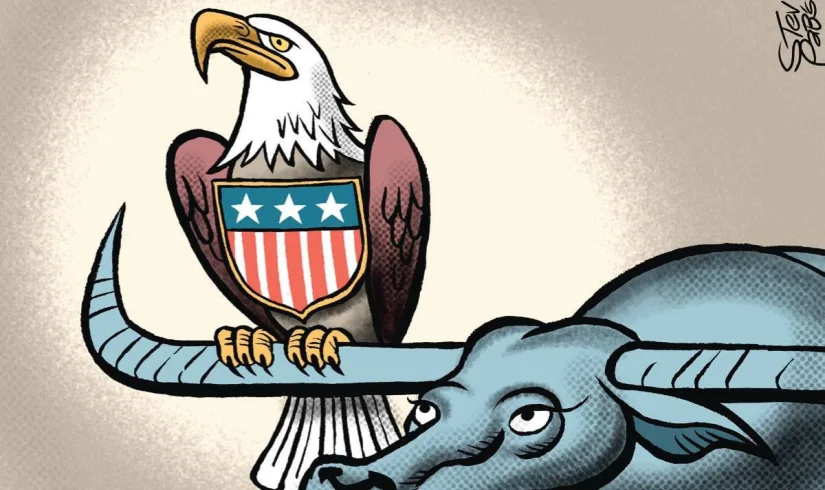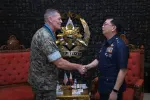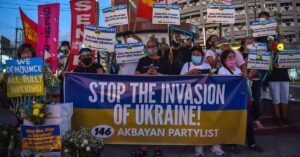
IN a joint statement issued after the 10th Philippines-United States Bilateral Strategic Dialogue (BSD) in Manila on Jan. 19-20, 2023, it was stated by both sides that “the full implementation of the EDCA is under way through the ‘expedited completion’ of projects in locations, as well as by adding more locations to the list.”
Foreign Affairs Undersecretary Ma. Theresa Lazaro said, “We have agreed to finalize the procedures for the additional agreed locations. In fact, it is a work in progress.”
Accordingly, the Philippines and the US are eyeing the full implementation of the Enhanced Defense Cooperation Agreement (EDCA) to highlight the significance of the Mutual Defense Treaty (MDT) between the Philippines and the US.
In this regard, is it safe to conclude that the US lobby for five additional EDCA bases has been successful and the additional bases for US use are now a done deal? If indeed this is so, as it seemingly is, based on the statement of Undersecretary Lazaro, would this not be inconsistent with what President Ferdinand Marcos Jr. said to Chinese President Xi Jinping and the rest of the world, that his administration is pursuing an independent foreign policy? Furthermore, is this not contradictory to the latest pronouncement of President Marcos at the World Economic Forum in Davos last week, where he said that “the Philippines and its fellow members in the Association of Southeast Asian Nations (Asean) and the Asia Pacific Cooperation Forum do not wish to see another ‘Cold War’ in the region?”
I find it really interesting and amusing that President Marcos is saying one thing while the DFA and the likes of Philippine Ambassador to the US Jose Manuel “Babes” Romualdez — who on Tuesday said, “I think we are going to have these enhanced patrols in the West Philippine Sea fairly quickly” — are singing a different tune. According to Romualdez, there is a serious discussion between the Philippines and the US on conducting joint patrols in the West Philippine Sea (WPS).
Is this how we conduct our foreign policy now under Marcos’ administration — ambiguous, uncertain and confusing? Is the current administration saying one thing and doing another? Is strategic ambiguity loaded with double standards and double-talk the nature of our foreign policy now under the current administration? I am pretty curious and, at the same time, quite amused.
Implications
The way I see it, in a volatile world with challenging geopolitical realities, if, in any case, the five additional US bases through EDCA are already a done deal; if, in any case, the declaration of Babes Romualdez is true, that there will be enhanced Philippines-US joint patrols in the WPS; if all these are true, these are provocative and rabble-rousing acts vis-à-vis Beijing given that many of these EDCA (US) bases are facing Taiwan and near the disputed South China Sea, significantly enhancing the US military’s ability to challenge Beijing.
Given the geopolitical realities of the Indo-Pacific region and the geo-strategic rivalry and competition between the US and China, these are provocative and beguiling acts as far as Beijing is concerned that will create unnecessary and unwarranted tension and controversy between the Philippines and China. It will put the Philippines in a new round of possible unnecessary tensions with China, which is unproductive and could be avoided. It will situate the Philippines in a precarious and awkward situation with Beijing.
Hence, the Philippines should exercise prudence in agreeing to the lobby of the US for five additional military bases through the EDCA and should be more cautious in the so-called enhanced patrols in the WPS with the US. WPS, a part of the contested South China Sea that the Philippines claims to have an exclusive economic zone, as far as other claimant states like China are concerned, is a disputed area.
Furthermore, establishing five more US military bases, additional military assets, and more US boots on the ground is not the way forward for the Philippines. What for? For whose convenience and benefit?
Filipinos should take into consideration that geopolitics is costly and detrimental to the country’s well-being and regional peace and stability. If things go wrong and a war in the Indo-Pacific region breaks out between superpowers involving the US, the Philippines may end up as collateral damage and cannon fodder for the US. These EDCA (US) military bases in the country will become prime targets for retaliation or attacks because of US military assets and the presence of boots on the ground. If this happens, the national survival and security of the country will be undermined and compromised. I don’t think being a pawn or proxy of the US in its geopolitical contests with China is part of the supreme national interests of the Philippines. I guess we don’t want a repeat of history, particularly what happened during World War 2. What the Philippines needs at this time is not an additional five EDCA (US) military bases but the establishment of more economic zones and industrial parks.
Conclusion
Indeed, the possibility that the Philippines will further open its military facilities to the US and possibly install five more EDCA or US military bases in the country is somewhat bothersome.
Opening the country’s military facilities to the US and allowing five more US military bases through EDCA for whatever reason is a dangerous path that the Philippines and its leaders must contemplate seriously.
If, in any case, this happens, the country practically becomes the unfortunate US strategic security and defense outpost and the launch pad for the US security and military operations in the Indo-Pacific region. No doubt, this is worrisome.
Thus, the new administration under the leadership of President Marcos Jr. must assess and look into these matters with much prudence and reservation. Likewise, the Marcos administration must consider that the 1987 Constitution prohibits the existence of foreign military bases and troops in Philippine territory.
In retrospect, as a country, we should have a firm resolve and tenacity to deviate from the “colonial mentality” of being subservient to the US, veering away from being used as a pawn in the US hardline policy and posture against China, which if not tempered and moderated will only lead to horrendous misadventure and tragedy.
For the nth time, I insist that the Philippines must pursue a meaningful independent foreign policy that upholds and prioritizes its supreme national interests and must avoid taking sides at all costs. It must not be subservient to the will and caprices of any superpower.
Regionally, the Philippines should continue to assert Asean centrality, which means unity and solidarity with neighboring countries in Southeast Asia. It should continue to forge good relations with the rest of Asia. And it should continue to pursue good relations with superpowers like China and the US and with the “middle powers” like Russia, Japan, Brazil, India, the EU, Australia and the like.
Concerning the disputed SCS, I think as long as maritime relations between the Philippines and China are stable, the overall situation of Philippines-China relations will be stable and secure, and the Philippines-China friendly, cooperative and pragmatic relationship will flourish.
Source: The Manila Times
https://www.manilatimes.net/2023/01/26/opinion/columns/is-us-request-for-5-more-ph-bases-under-edca-a-done-deal/1875884



